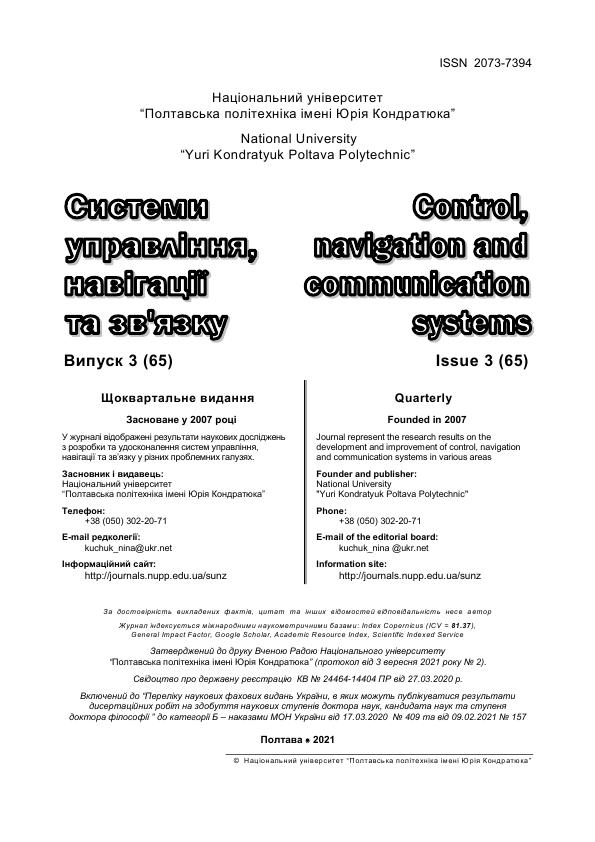DEVELOPMENT OF A TRAINER MODEL FOR AUTOMATED CONTROL SYSTEM FOR CIVIL AVIATION PILOTS SIMULATOR TRAINING
DOI:
https://doi.org/10.26906/SUNZ.2021.3.018Keywords:
student's model, simulator training, aviation simulator, psychological profile of a personalityAbstract
The article discusses the process of creating a student model as one of the components of an automated control system for civil aviation pilots simulator training. The existing methods of constructing a student's model and the peculiarities of their implementation are analyzed, namely: overlay, perturbation, difference models. The components of the student's model are determined, special attention is paid to the component - the psychological profile of the personality. Taking into account the specifics of flight activity, in the psychological profile of the personality of the student's model, in addition to his general personal qualities, it is proposed to additionally include those characteristics that can affect the success of the simu lator training program. They are due to the structure and content of the pilot's activity during the operation of the aircraft. To determine these additional qualities, the supporting fragments of the pilots' activities and the factors necessary for their successful implementation were analyzed. The structure of the student's model is proposed. It is built taking into account the psychological aspects of the personality that affect the flying ability and their developmentDownloads
References
Овчаров В.Е. Человеческий фактор в авиационных происшествиях. – М.: МАК, 2005.
Рыбина Г.В. Обучающие интегрированные экспертные системы: некоторые итоги и перспективы / Г.В. Рыбина // Искусственный интеллект и принятие решений, 2008. – No1. – С.22 – 46.
Потапов А. Н. Системный анализ модели организации тренажной подготовки операторов сложных эргатехнических систем / А. Н. Потапов, В. В. Черников // Системный анализ и информационные технологии, 2012. – No 1. – С.28 – 34.
Картамышев П. В. Методика летного обучения / П. В. Картамышев, М. В. Игнатович, А. И. Оркин. – М.: Транспорт, 1987. – 278 с.
Авиационная психология и человеческий фактор: учеб.-метод. пособие / Д.А. Евстигнеев. – Ульяновск: УВАУ ГА, 2005. –103 с.
Задкова О. Особливості комунікативної взаємодії пілотів у процесі вирішення проблемних ситуацій як складова професійної надійності / О. Задкова, О. Бродова // Вісник Національного авіаційного університету. Серія: Педагогіка, психологія. 2018. – No 12. – С.1–5.
Семак О.О. Основи інженерної психології: Навчально-методичний посібник – Івано-Франківськ: Плай, 2006. – 106 с.
Казачкин Б. И. Авиационные тренажеры как связующее звено между наземной и летной подготовкой / Б.И. Казачкин. – Монино, 1999. – 160 с.




